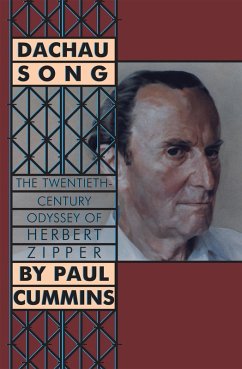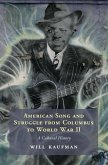Herbert Zipper was born in 1904 in Hapsburg, Vienna. He was educated in the finest academies, studying under Richard Strauss and Maurice Ravel, among others, and became a conductor-composer in Germany in the early 1930s. When Hitler became Chancellor, he hastened back to Vienna, composing music for underground cabarets. In 1938, after the Anschluss, he was sent to Dachau and transferred to Buchenwald (1939). In Dachau, he organized clandestine concerts in an abandoned latrine. He and prisonmate Jura Soyfer also composed a song, «The Dachau Lied», which was to have an extraordinary history. He was released from Buchenwald and journeyed to Manila to marry the love of his life and to conduct the Manila Symphony Orchestra. When the Japanese invaded (1942), he was put in prison again. A few weeks after the liberation of Manila, out of the rubble of the city he created an extraordinary concert. After the war he came to America, was responsible for the founding of over a dozen community arts schools, and has been an internationally effective educator. Throughout his remarkable journey, Zipper maintained a spirit of hope and achievement. This is a story of the triumph of human will and spirit.
Dieser Download kann aus rechtlichen Gründen nur mit Rechnungsadresse in A, B, BG, CY, CZ, D, DK, EW, E, FIN, F, GR, HR, H, IRL, I, LT, L, LR, M, NL, PL, P, R, S, SLO, SK ausgeliefert werden.
«Zipper, you didn't omit a chance to be killed.» (Otto Klemperer, Conductor)
«Don't forget, Zipper, this whole civilization of man has been built by very few people, and I'm talking to one.» (John D. Rockefeller III To Herbert Zipper)
«I read the book with growing suspense. It is written with crystal clarity and with a knowledge of European dimensions rarely found among Americans! » (Sebastian Feldman, Writer for the Rheinische Post, Dusseldorf, Germany)
«In Dachau, Herbert Zipper secretly led an orchestra. He survived the Nazis to champion his beloved art.» (Patricia Ward Biederman, Los Angeles Times)
«Don't forget, Zipper, this whole civilization of man has been built by very few people, and I'm talking to one.» (John D. Rockefeller III To Herbert Zipper)
«I read the book with growing suspense. It is written with crystal clarity and with a knowledge of European dimensions rarely found among Americans! » (Sebastian Feldman, Writer for the Rheinische Post, Dusseldorf, Germany)
«In Dachau, Herbert Zipper secretly led an orchestra. He survived the Nazis to champion his beloved art.» (Patricia Ward Biederman, Los Angeles Times)









